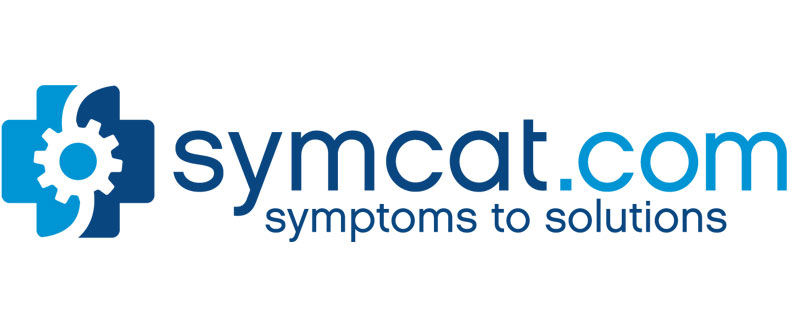Coughing? Sneezing? Runny nose? Log on to Symcat, type your symptoms into its online database and soon you’ll know whether that panicky emergency room visit you’re planning is ill conceived.
The brainchild of Johns Hopkins University medical school students Craig Monsen and David Do, Symcat—which stands for sympton-based, computer-assisted triage—is, in Monsen’s words, an “app that helps you when you’re sick, [with] what you may have and what to do about it, using data-driven algorithms.”
Which sounds good, until you begin wondering how exactly this is different from those WebMD searches you’ve been conducting.
“The focus is really on providing actionable information, rather than [an] encyclopedic, large amount of content that leaves you wondering, ‘Is this something I actually need to worry about?’ ” says Monsen.
Visit Symcat here.
Symcat provides this actionable information by analyzing symptoms entered in by users against data records Monsen and Do have collected from the Centers for Disease Control and Prevention’s biosurveillance program.
After users have entered in their symptoms, they’re guided through a short questionnaire—questions about age, gender and medical history, for instance, are asked—and eventually some sort of recommendation is given as to what action users should pursue, along with a percentage chance of what a user might be suffering from. To facilitate this, Symcat’s algorithm includes guidelines from the Agency for Healthcare Research and Quality, a government-funded organization that creates guidelines physicians and medical professionals follow.

“We thought we would help [people] in that decision-making process as long as it was … a process that anyone could understand,” Monsen says.

Co-founders Monsen and Do, as well as Tolu Babalola, who joined the team this summer, are 26 and work out of the Butchers Hill neighborhood. Babalola attended the University of Maryland Baltimore County and has been working with startups since graduating, while Monsen and Do studied engineering during their undergraduate years and met their first year of Hopkins medical school in 2008.
Monsen and Do began conceptualizing Symcat in June 2011. After working rotations in the emergency room, they realized that people were waiting for long hours for ER treatments they didn’t need, or were clueless as to what treatment was appropriate for their specific symptoms. Monsen and Do also wanted to merge their interests in technology and medicine together, and thought there was value in using data to drive people toward more informed health decisions.
“That’s the value of data—figuring out and using it to inform decisions,” says Monsen. “Otherwise it’s just collecting data for its own sake.”

The first prototype of Symcat was released in November 2011, and it’s the version that they’ve been updating since.
This last year, Monsen and Do both took a break from medical school to focus full-time on Symcat. Fortunately for them, the time off helped: from January through the end of March, Symcat was one of the startups in the inaugural class to attend the Blueprint Health accelerator in New York City, which meant shared office space for three months, trading a six percent equity stake in Symcat for $20,000 in funding and access to a broad mentor network.
“It was an opportunity to talk with … health plan executives, hospital executives, physicians, patients, government officials and use that as a sounding board and get feedback about ideas,” says Monsen. “We didn’t do it for the $20,000.”
Then again, they don’t need it. In June, Symcat was awarded $100,000 by the Robert Wood Johnson Foundation during Washington, D.C.’s Health Data and Innovation Week.

As of now, Monsen, whose studies at Hopkins are in internal medicine, and Do, who’s studying neurology, plan on working on Symcat while finishing their residency after wrapping up this final year at medical school.
“I think it makes a lot of sense in health care, health informatics to have physician leaders,” says Monsen. “And we are planning to finish up our training. … Obviously we’ll be planning on balancing those. We’re taking it a day at a time.”
Symcat.com: web tool from Johns Hopkins medical students offers patient self-diagnosis







